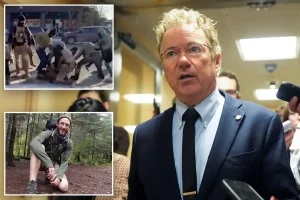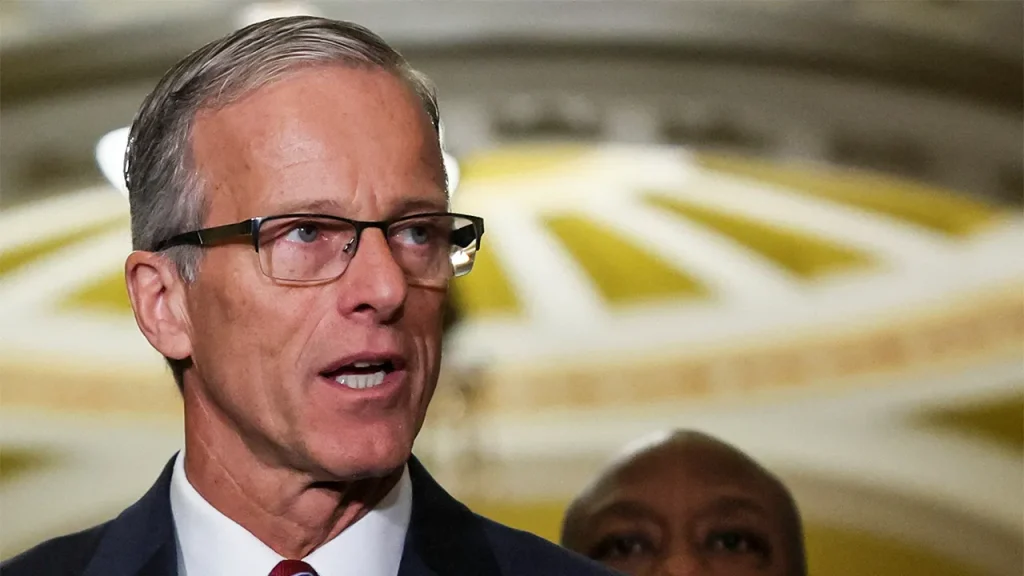The aftermath of the recent terrorist attack in New Orleans has ignited a firestorm of criticism directed at the FBI and local law enforcement, with prominent Republican senators calling for sweeping reforms and accountability within these agencies. Senator John Thune, the Senate Majority Leader, articulated a widespread sentiment of distrust in the FBI, emphasizing the need for a significant overhaul to restore public confidence. He expressed confidence in Trump’s nominee to lead the FBI, Kash Patel, highlighting Patel’s understanding of the agency’s crucial mission. This criticism comes on the heels of the FBI’s initial mischaracterization of the New Orleans attack, which they initially deemed not terror-related before later reversing course and launching a terrorism investigation linked to ISIS. This misstep, along with other perceived failures, fueled concerns about the agency’s competence and fueled calls for urgent reform.
The New Orleans attack, where a truck plowed into a crowd on Bourbon Street, also brought to light potential security lapses at the local level. Senator Bill Cassidy pointed to the availability of vehicle barriers that could have prevented the tragedy but were not deployed, demanding consequences for those responsible. He specifically called for a thorough review of the situation, suggesting the potential replacement of New Orleans Police Superintendent Anne Kirkpatrick if the investigation reveals leadership failures. This incident highlights a broader concern about preparedness and response protocols in the face of potential terrorist threats, prompting questions about the effectiveness of existing security measures.
These senators’ criticisms underscore a growing concern among some within the GOP regarding the effectiveness and reliability of federal and local law enforcement agencies. The calls for reform go beyond simply addressing the immediate failures surrounding the New Orleans attack. They represent a broader push for greater accountability and transparency within these institutions, along with a reassessment of their strategies for combating terrorism and protecting public safety. The emphasis on restoring public trust suggests a recognition that perceived failures erode the public’s confidence in the very agencies tasked with their protection, thereby undermining national security efforts.
The selection of Kash Patel as Trump’s nominee to lead the FBI has been presented as a potential solution to the agency’s perceived problems. Thune’s endorsement of Patel underscores the belief among some that he possesses the necessary qualities to implement the desired reforms and restore the FBI’s credibility. Patel’s confirmation, however, is not guaranteed and will require Senate approval, potentially setting up a political battle over the direction of the agency. This appointment will likely be closely scrutinized, as it represents a key element of Trump’s approach to national security and law enforcement.
The fallout from the New Orleans attack and the broader concerns about law enforcement performance have set the stage for a potentially significant reshaping of these agencies under the incoming Trump administration. The calls for reform, accountability, and leadership changes indicate a desire for a more proactive and effective approach to combating terrorism and ensuring public safety. The focus on restoring public trust highlights the importance of not only addressing operational failures but also addressing the perceived disconnect between law enforcement and the communities they serve. This requires a comprehensive approach that goes beyond personnel changes and delves into the agencies’ internal cultures, training procedures, and overall strategies.
The challenges facing the FBI and other law enforcement agencies are complex and multifaceted. Effectively combating terrorism requires not only robust security measures but also effective intelligence gathering, interagency cooperation, and community engagement. The criticisms leveled by these senators underscore the urgency of addressing these challenges and implementing reforms that enhance both the effectiveness and the public perception of these crucial institutions. The success of these reforms will depend on a variety of factors, including political will, adequate resources, and the ability of leadership to implement meaningful changes and inspire confidence among both law enforcement personnel and the public.















